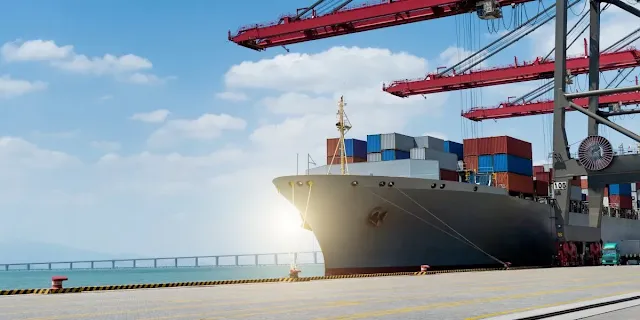Private Freight Terminal: A Complete Guide to Efficient Cargo Handling
Private Freight Terminal
In the rapid world of logistics and supply chain management, private freight terminals play an important role in ensuring even load movement. Whether you own a company, logistics manager or shipping professional, understand how private goods terminals work, can help adapt your supply chain, reduce costs and improve efficiency.
This wide guide cover:
What is a private freight terminal?
How do personal goods terminals work?
Major benefits of using an individual goods terminal
Difference between private and public terminals
Private industries
How to choose the right private freight terminal
Future trends in personal goods carrying terminals
If you are looking for a quick, safer and effective way to handle cargo, this guide is for you!
What is a Private Freight Terminal?
A private freight terminal is a dedicated cargo handling feature, ownership and operated of a single company or a consortium, rather than a government or public unit. These terminals are designed to streamline logistics operations, offering special access, customized services and increased safety compared to public terminals.
Major features of private freight terminals:
✔ Exclusive Access - Only authorized businesses can use only facility.
✔ Customized Logistics Solutions - Services for Tribe Industries.
✔ Advanced Technology-Surprise, Real Time Tracking, and Smart Warehousing.
✔ Increased security - Reduce the risk of theft and damage.
✔ Rapid turnaround time - least delay due to dedicated operation.
How Do Private Freight Terminals Work?
Private freight terminals act as centralized hubs where cargo is obtained, stored, processed and sent. Here is a step-by-step breaking:
1. Obtaining and inspecting cargo
The upcoming shipments are unloaded, scanned and inspected for compliance.
Digital documentation (eg, e-way bill, customs withdrawal) is processed.
2. Storage and warehousing
The goods are stored in climate-controlled or special areas (eg, perishbals, dangerous materials).
Inventory is managed through the Warehouse Management System (WMS).
3. Sorting and processing
Automatic systems (conveyor belts, robotics) sort shipments by destination.
Cross-dock reduces storage time for time-sensitive goods.
4. Loading and dispatch
Cargo is loaded on trucks, trains or aircraft for final delivery.
Real-time tracking ensures transparency.
Key Benefits of Using a Private Freight Terminal
1. Faster and more efficient operations
No crowd (unlike public terminals).
Priority handling for high-value or immediate shipment.
2. Low risk of damage and theft
Restricted access reduces unauthorized handling.
24/7 monitoring and advanced security protocols.
3. Cost saving in the long run
Reduced fee (no delay in public dock).
Wholesale handling discounts for repeated shippers.
4. Customized logistics solution
Specific storage (cold storage, dangerous material handling).
Direct integration with company supply chains.
5. Better compliance and documentation
Automatic customs withdrawal for international shipment.
Reduced the errors of paperwork with digital tracking.
Private vs. Public Freight Terminals: Key Differences
| Factor | Private Freight Terminal | Public Freight Terminal |
|---|---|---|
| Ownership | Privately owned (company/consortium) | Government/Public |
| Access | Restricted (authorized users only) | Open to all shippers |
| Cost | Higher initial cost, but long-term savings | Lower cost but delays & congestion |
| Customization | Tailored solutions for businesses | Standardized services |
| Security | High (dedicated surveillance) | Moderate (shared risk) |
| Efficiency | Faster processing (dedicated workforce) | Slower (high traffic) |
Top Industries That Use Private Freight Terminals
1. E-commerce and retail
Amazon, Walmart, and Alibaba use private terminals for the same day's delivery.
Automatic sorting gives speed to order supply.
2. Motor vehicle and manufacturing
Just-in-time (JIT) Logistics rely on spare parts and private terminals for raw materials.
3. Pharmaceuticals and Healthcare
Temperature-controlled storage for vaccines and medicines.
Compliance with FDA and WHO regulations.
4. Agriculture and Perish
Cold storage prevents fruits, vegetables and dairy from spoiling.
5. oil and gas
Specific handling for dangerous and oversized cargo.
How to Choose the Right Private Freight Terminal
1. Location and connectivity
The proximity to the highways, ports and railways reduces transit time.
2. Technology and automation
See for IOT-competent tracking, AI-operated logistics and robotics.
3. Safety measures
24/7 CCTV, biometric access and cyber security for digital systems.
4. Scalability
Can the terminal demand a peak season?
5. Cost vs. price
Compare the pricing model (per ton, per shipment, or membership-based).
Future Trends in Private Freight Terminals
AI and Automation - Future analysis for demand forecast.
Blockchain-safe for transparency, tampering-proof shipment record.
Green Terminal-Core-operated warehouses and electric forklifts.
Drone and Robot Delivery-Tast-Meal Automation.
Private freight terminals provide speed, safety and efficiency, leading them to businesses that prefer reliable logistics. Whether you are in e-commerce, manufacturing, or pharmaceuticals, investing in a private terminal can reduce costs, reduce delays and improve supply chain performance.
🔹 A private freight terminal is required? Evaluate the needs of your logistics and choose a feature that align with your business goals!
Read more : America to Australia Shipping




Post a Comment